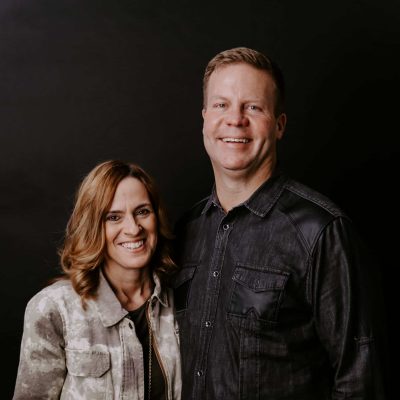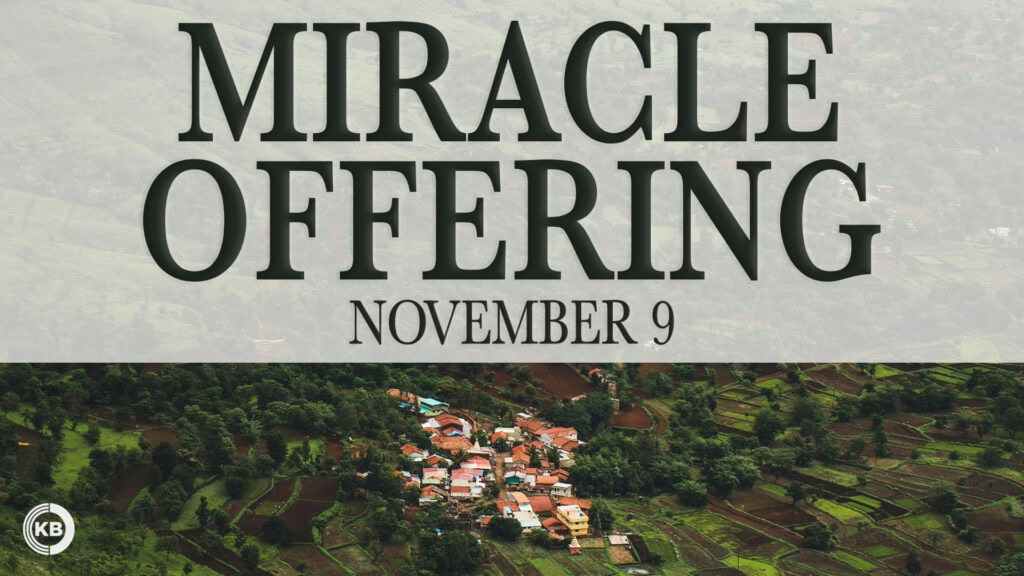21 DAYS OF PRAYER AND FASTING
January 5 – January 25, 2025
Every January, we set aside 21 days to intentionally seek God in prayer and believe for Him to move in powerful ways. This year we want to “Invest in the Next!”
As a church, we are praying and fasting for:
- Personal Renewal – For each of us to hear from God, listen for new direction, and have fresh surrender to Him. For our families to focus on Godly priorities.
- Church Revival – For God’s presence to move powerfully at all Emmanuel locations. For anointed worship, preaching, and Next Gen Ministries. For an expansion of Team Emmanuel and Connect Groups leaders. For growth numerically and spiritually. For Pastors and Ministry leaders, including their marriages and families. For spontaneous healings at church.
- Community Impact – For all of us to have passion and anointing to reach our communities. For those away from God. For our Kingdom Builder partners.
- World Peace – For peace on earth. For God’s favor and mercy on our country. For government leaders.
Let us know you’re praying, here!
“Then if my people who are called by my name will humble themselves and pray and seek my face and turn from their wicked ways, I will hear from heaven and will forgive their sins and restore their land.” 2 Chronicles 7:14 (NLT)
Be sure to check with your location for midweek prayer opportunities.
Submit a Prayer Request
We would be honored to pray with you. Tell us how we can stand in agreement with you during this season.
Submit a Prayer Request, here.
Fasting Resources
At Emmanuel, we encourage fasting for 21 days each year in the month of January.
The goal of fasting is to draw closer to God.
More information of fasting, here.
Fasting is a practice that has been carried out over the ages around the world. Beyond that, it’s a spiritual discipline that shows up a lot in Scripture. We see it all over the Old Testament and in the New Testament. We see great and inspiring examples of fasting, like Moses (Exodus 34:28), Daniel (Daniel 1:12-17; 10:2-3), Esther (Esther 4:16) and even Jesus and the apostle Paul. Then the Bible also shows us bad examples of people who practiced fasting, like the religious hypocrites in the Gospel.
Fasting has a powerful impact on our relationship with God and helps us to continue to grow in Him. Simply, we can define fasting as “intentionally abstaining from a legitimate need or right in order to pursue God with greater effort and focus”. There can be a lot of confusion about the topic, and even some resistance. The best thing we can do is look at Scripture to gain a clear picture regarding the amazing and powerful experience of fasting.
It’s no surprise that Jesus teaches us the most about fasting. He taught us by His example. At the beginning of His ministry, he fasted for 40 days when He was in the wilderness overcoming temptation. On the Sermon on the Mount, He said in Matthew 6:16-18, NLT, “And when you fast, don’t make it obvious, as the hypocrites do, for they try to look miserable and disheveled so people will admire them for their fasting. I tell you the truth, that is the only reward they will ever get. But when you fast, comb your hair and wash your face. Then no one will notice that you are fasting, except your Father, who knows what you do in private. And your Father, who sees everything, will reward you.’
Notice Jesus said, “when you fast” not “if you fast”? He is teaching with the assumption that all believers will follow His teaching and example concerning fasting. Jesus makes it plain that we fast for the audience of one: God the Father. In the Gospels, He teaches that fasting is powerful when practiced in prayer and faith (Matthew 17:21). “Mountains can be moved and nothing is impossible.” He states that there is a time and a season for fasting (Matthew 9:14-15) and cautioned us that fasting is useless if practiced as an outward discipline if our inner life isn’t in alignment (Luke 18:12-14; Matthew 23:25-28)
There are many ways that fasting can be practiced:
• It can be practiced daily, weekly, monthly, or seasonally
• It can be intermittent fasting, for a portion of the day
• It can be fasting certain foods, much like Daniel abstained from certain foods and drinks
• It can be fasting solids and only drinking water or broth
• And by principle it can be fasting other legitimate rights or needs, like media consumption, or social media, of phone usage.
• It can also be a full fast, where for a certain timeframe you abstain from food and water (a word of caution here… I’d recommend building the discipline of fasting and not jumping into until you are ready. Also check with your physician if you have any questions or concerns about how your own body can be prepared and how it will respond to a more intense fasting season).
We can learn these things through fasting:
• Self-Denial – It is the exercise of saying “no” to ourselves so we can more readily say “yes” to God. Luke 9:23, NIV, ‘Then he said to them all: “Whoever wants to be my disciple must deny themselves and take up their cross daily and follow me. ‘
• Clarity – We can hear God more clearly when we fast.
• Perspective – Our perspective is reframed, and we are able to realize our appetites and urges are not building eternal values. We can fix our thoughts on what is true, noble, and eternal. We can reign in the habit of giving into my impulses.
• Fasting impacts the people around us. (Isaiah 58:3-11, NLT)
Fasting is NOT:
• A hunger strike to twist God’s arm or corner Him for an answer.
• It’s not to be confused with a diet (that would completely miss the point!)
• Fasting media or social media should not be confused with a digital detox
• And Paul cautions and states clear guard rails when fasting intimacy with your spouse so that it doesn’t turn into manipulation, emotional revenge, or a relational train wreck (I Cor 7:5)
True fasting is the “diligent search for God during an established timeframe” as we intentionally abstain from a legitimate need or right.
We want to encourage you to target your prayers during the fast. Fasting empowers us in unique ways to break free from oppressing dynamics in our life spiritually, emotionally, habitually, financially, and physically. Ask the Lord to show you areas to target during your time of fasting and prayer. We believe that, as we pray and seek God and give Him our best at the first of the year, He will bless our ENTIRE year (Matthew 6:33)!
The goal of fasting is to connect with God. Again, we can define fasting as “intentionally abstaining from a legitimate need or right in order to pursue God with greater effort and focus.” If you are new at fasting, we encourage you to ease into this spiritual discipline. Try fasting a meal or a day each week. There are several types of fasts and different approaches for you to try The one you choose is between you and God. He will honor your best sacrifice.
• Complete Fast
In this type of fast, you drink only liquids, typically water with light juices as an option.
• The Daniel Fast
Eat no meat, no sweets and no bread. Drink water and juice. Eat fruits and vegetables. Learn More Here
• 3-Day Fast
This fast can be a Full Fast, Daniel Fast or give up at least one item of food.
• Partial Fast
This fast is sometimes called the “Jewish Fast” and involves abstaining from eating any type of food in the morning and afternoon. This can either correlate to specific times of the day, such as 6:00 am to 3:00 pm, or from sunup to sundown.
• Selective Fast
This type of fast involves removing certain elements from your diet. One example of a selective fast is the Daniel Fast, during which you remove meat, sweets, and bread from your diet and consume water and juice for fluids and fruits and vegetables for food.
• Set Yourself Apart
This is also known as consecration. It is a great option if you do not have much experience fasting food, have health issues that prevent you from fasting food, or if you wish to refocus certain areas of your life that are out of balance. For example, you might choose to stop using social media or watching television for the duration of the fast and then carefully bring that element back into your life in healthy doses at the conclusion of the fast.
SCRIPTURE REFERENCES FOR FASTING
• Matthew 6:16-18, Matthew 9:14-15, Luke 18:9-14
RELATION TO PRAYER AND READING OF THE WORD
• 1 Samuel 1:6-8, 17-18, Nehemiah 1:4, Daniel 9:3, 20, Joel 2:12, Luke 2:37, Acts 10:30, Acts 13:2
CORPORATE FASTING
• 1 Samuel 7:5-6, Ezra 8:21-23, Nehemiah 9:1-3, Joel 2:15-16, Jonah 3:5-10, Acts 27:33-37
Remember that it is the attitude of a heart sincerely seeking Him to which God responds with a blessing (Isaiah 58, Jeremiah 14:12, 1 Corinthians 8:8). May God greatly bless you as you fast! Your personal fast should present a level of challenge, but it is very important to know your body, your options, and most importantly, to seek God in prayer and follow what the Holy Spirit leads you to do.
Check out the resources on this page for books on fasting.
For more information on prayer, visit out dedicated prayer page here
The Bible talks a lot about prayer – corporate prayer, intercessory prayer, and individual prayer. When we strengthen our own personal prayer time, we are more effective when we come together. Prayer is simply the way we talk to God and He talks to us.
Jesus taught his disciples how to pray. Matthew 6:5-6 (NLT), says “When you pray, don’t be like the hypocrites who love to pray publicly on street corners and in the synagogues where everyone can see them. I tell you the truth, that is all the reward they will ever get. But when you pray, go away by yourself, shut the door behind you, and pray to your Father in private. Then your Father, who sees everything, will reward you.”
Here are five ways to ignite your personal prayer time.
1. Make regular appointments with God and keep them.
(like you would a doctor appointment, hair appointment, or an appointment with a friend.) Write it on your calendar. Find your place and a time to meet with God. Pick a time when you will not be interrupted or distracted. This is your personal prayer time with the Lord so show up on time (with your Bible, journal, worship music, your coffee, or whatever you need.)
2. Remember to Whom you pray.
Do you know people of other religions pray to different Gods? Remember to Whom you pray! You are praying to the ONE and TRUE LIVING GOD, the Heavenly Father in Jesus’ name. The God of the Bible who has the power to change everything!
3. God responds to prayer.
Prayer is a conversation. You talk to God and He talks to you. He responds to prayer. YOUR PRIMARY FOCUS OF PRAYER IS TO KNOW GOD. Prayer is a vehicle for a conversation. It is not a one-way conversation; we need to give God the opportunity to speak to us.
4. Leave the results up to God.
When you pray, know that you put your requests in God’s hands and leave the results up to Him.
Don’t stop praying. We are not in charge. Ask God how you should pray and then pray according to His will. Bring your burdens to Him and leave them there.
5. Plan out your prayer time.
Plan ahead for your personal prayer time! Here are some practical ideas for you to develop your prayer time.
a. Decide when and where you will pray
b. Keep a prayer journal. Record what you feel the Lord is saying to you, record your prayer requests, and praises.
c. Take time to LISTEN to what the Lord is saying to you through prayer and scripture.
d. Switch up the routine. Don’t do the same thing each time. (Worship, scripture reading, different formats, different requests, different postures and pray in the spirit.)
Prayer models are ways to organize your prayer time. Here are a few models for you to try in your personal prayer time.
1. Lord’s Prayer –Jesus modeled it:
Matthew 6:9-13 (NKJV), “In this manner, therefore, pray:
Our Father in heaven, Hallowed be Your name. 10 Your kingdom come. Your will be done On earth as it is in heaven. 11 Give us this day our daily bread. 12 And forgive us our debts, As we forgive our debtors. 13 And do not lead us into temptation, But deliver us from the evil one. For Yours is the kingdom and the power and the glory forever. Amen.
a. First five lines (vs 9-10) First five lines (vs 9-10) acknowledges WHO we pray to!
b. The second five lines (vs 11-13) Second five lines (vs 11-13) are WHY we pray (ask for daily needs, forgiveness of sins, and God’s guidance)
c. Last line (vs 13b) adores, praises, and acknowledges God’s authority in our life
2. ACTS
a. Adoration (remember who you are praying to)
b. Confession (we are lost without the Lord)
c. Thanksgiving (we are thankful for all he has done)
d. Supplication (make our requests known)
3. Focus Areas:
Organize your prayer requests into Six Focused areas for prayer requests:
1. World
2. Community (United States, MN, Cities, Church, workplace)
3. Family/Loved Ones
4. Burdens
5. Lost
6. Blessings
To join, download the Emmanuelmn App and enable notifications to receive the daily 21 Days of Prayer and Fasting devotional.
Make sure to celebrate the completion of the fast with us on Vision Night, February 4th at 6pm at the Spring Lake Park location. The end of this service will mark the completion of the fast for us as a church body.
21 Days of Prayer is a time where we intentionally seek God every day in prayer as we believe for Him to move in powerful ways. If you are preparing for an upcoming season of 21 Days of Prayer or you want to learn more about strengthening your personal prayer life, use these resources to help.
- Teaching on Fasting | Pastor Nathan Grams
- God’s Chosen Fast | Book by Arthur Wallis
- AWAKENING | Book by Stovall Weems
- The Forty-Day Word Fast | Book by Tim Cameron
- Igniting Your Personal Prayer Time | by Pastor Jodi
- Leveling the Praying Field | Book by Donna Barrett
- Fasting with God – Finding Breakthrough and Power in the Names of God by by Tammy Hotsenpiller





